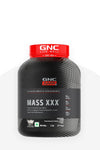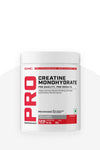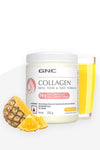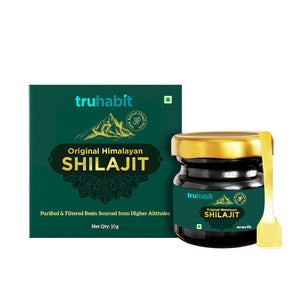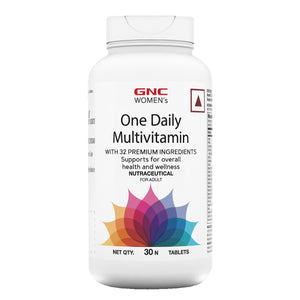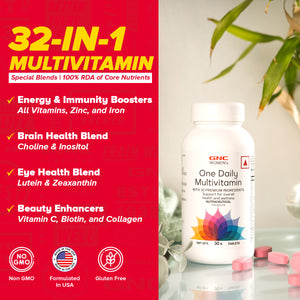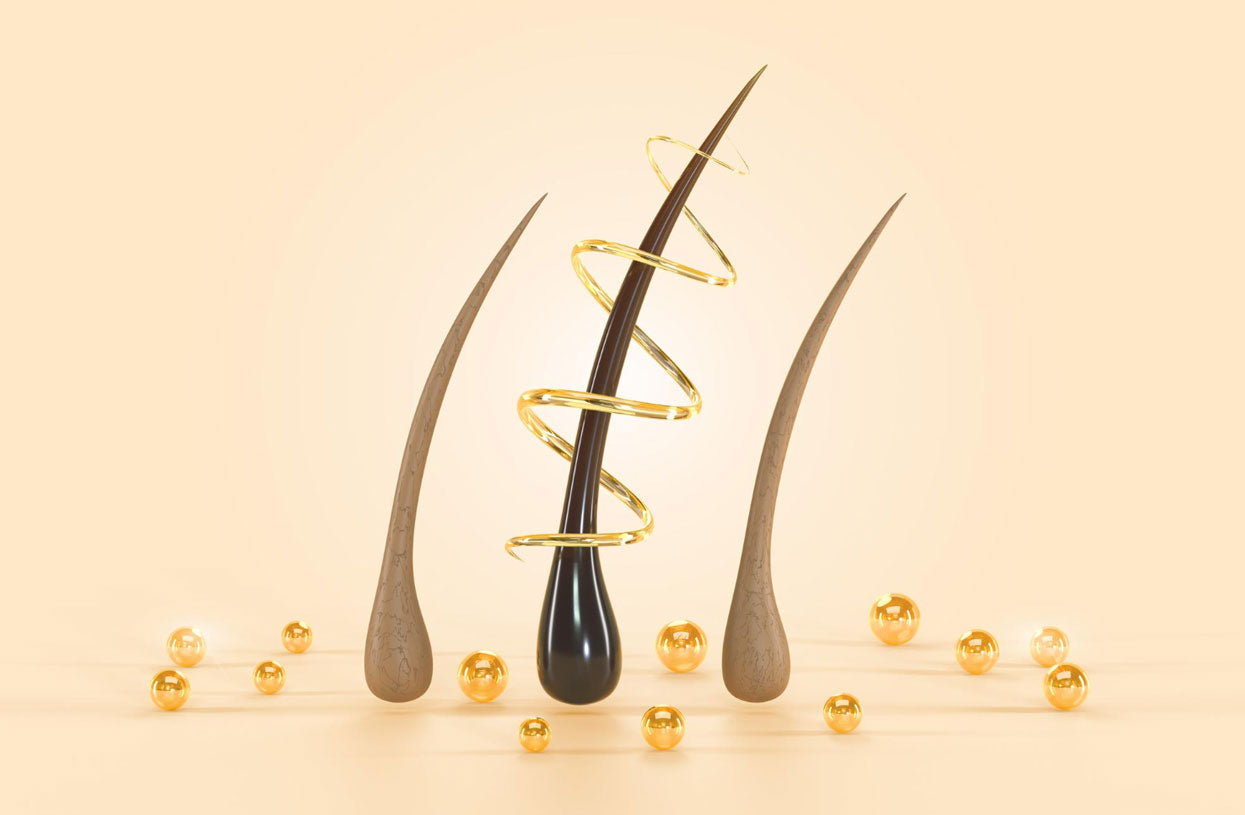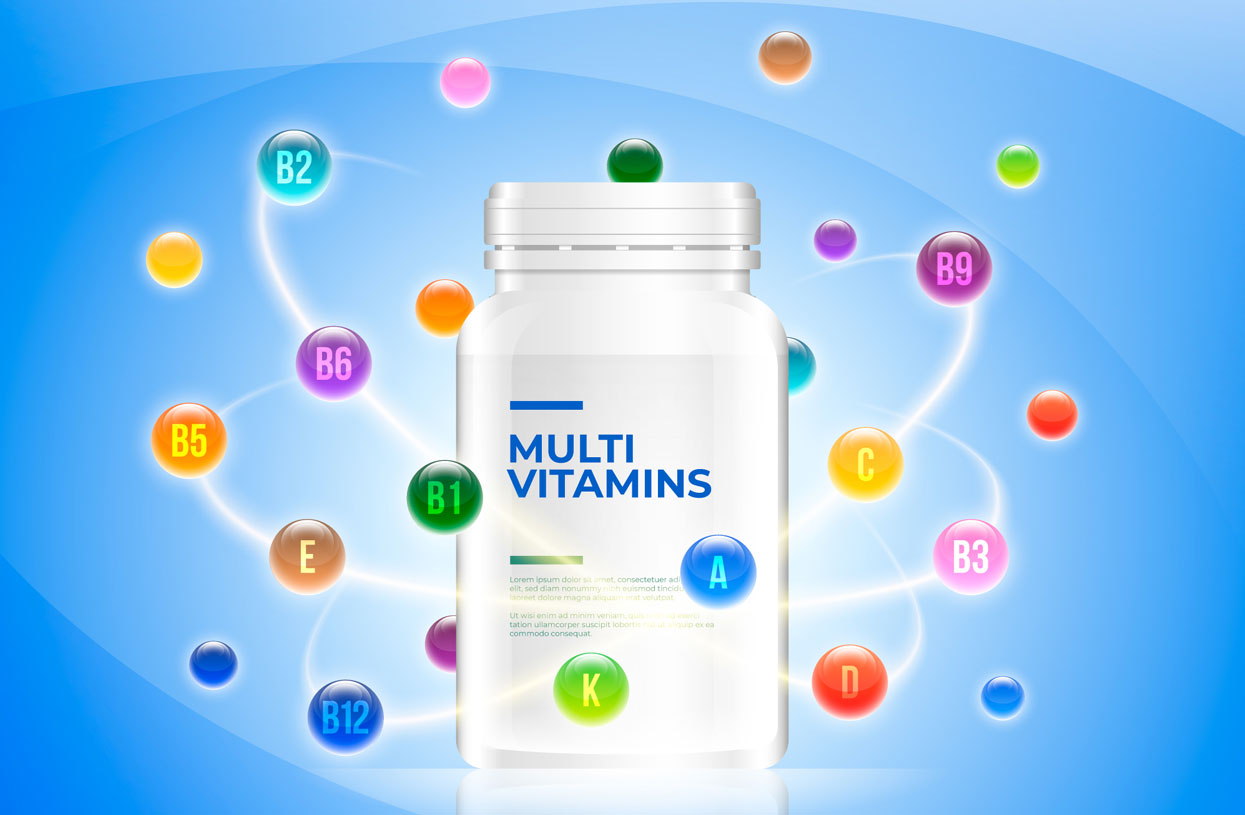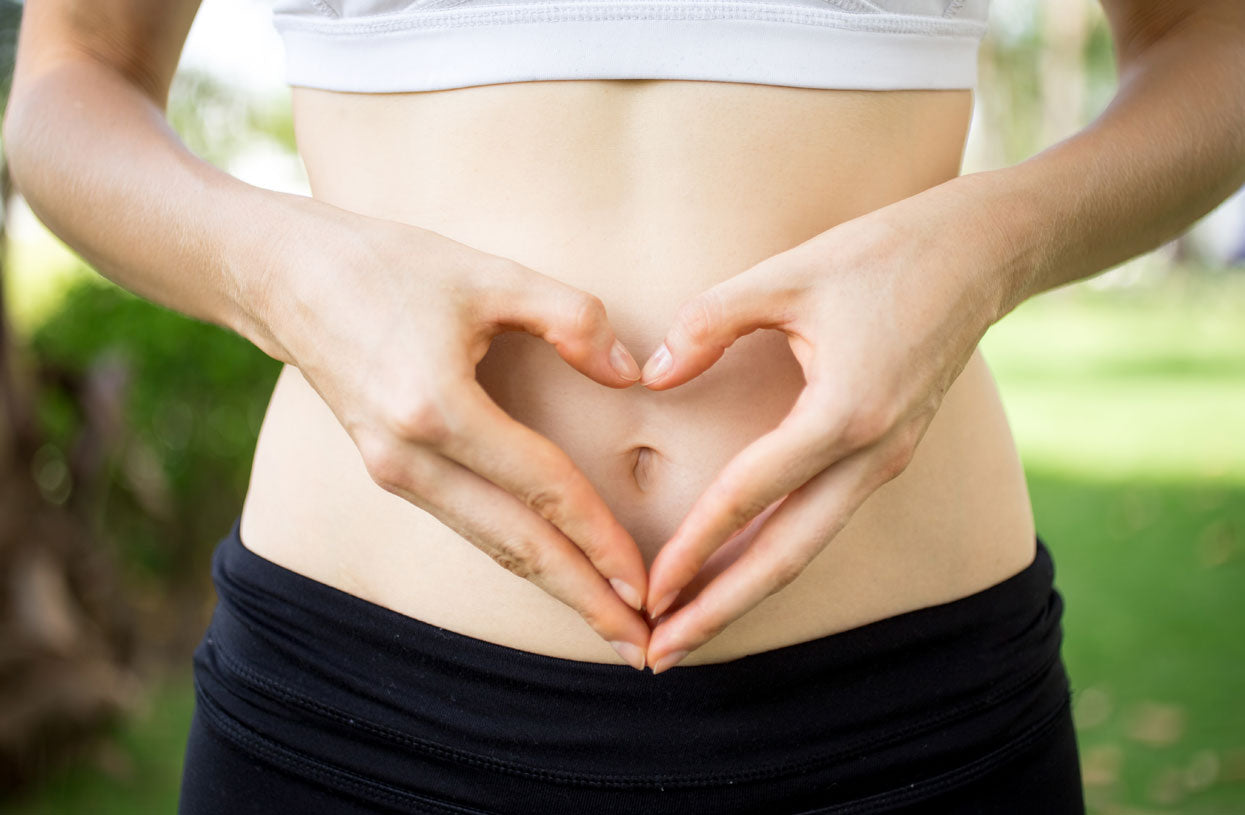Your hair has to go through so much on a daily basis – heat, dust, pollution, harsh weather, use of hair products & styling tools, etc. Additionally, there is a lack of proper diet, poor nutrition, stress, and unhealthy lifestyle, which takes a toll on your hair. Hair problems, such as excessive hair fall, premature graying, split ends, and hair thinning has become so popular and every second person is complaining about it.
But did you know that no matter how many expensive products or treatments you use externally on your hair, if you don’t follow a healthy and nutritious diet, it all goes in vain. Taking care of your hair is a combination of a healthy diet and using the right kind of products based on your hair type. A lot of people these days rely on multivitamins and hair supplements to provide the right nutrition to their hair. But do you know which vitamin is good for hair growth? Keep reading the blog to find out and also the best sources of each of these vitamins.
Vitamins for hair growth
Whenever we talk about vitamins for hair growth and thickness, the following cannot be ignored –
Biotin
Biotin, also known as vitamin B7 or vitamin H, is a water-soluble B-vitamin that is often associated with promoting healthy hair, skin, and nails. Biotin plays a role in several bodily processes, including converting food into energy and supporting the health of the nervous system. Here’s how biotin helps with hair health –
- Enhances hair growth: Biotin is believed to support hair growth and strength by promoting the production of keratin, a protein that makes up the structure of hair. Keratin is essential for the formation of hair strands, and biotin contributes to its production.
- Prevents hair fall: Some people take biotin supplements to reduce hair loss, especially in cases of hair thinning or brittle hair. Biotin's role in promoting healthy hair structure may contribute towards preventing hair breakage and loss.
- Improves scalp health: Biotin can also play a role in maintaining a healthy scalp. A healthy scalp is crucial for hair growth, as it provides a supportive environment for hair follicles to grow and thrive.
- Enhances hair quality: Biotin may improve the overall quality of hair, making it appear shinier and more lustrous.
Some Biotin-rich foods that you can include in your diet are – sweet potatoes, salmon, eggs, bananas, spinach, mushrooms, peanuts, avocado, dairy products like milk and cheese, oatmeal, etc.
Vitamin C
Vitamin C is a strong antioxidant and it is usually consumed to boost immunity. But did you know that vitamin C also plays an important role in maintaining your hair health? It is commonly known as ascorbic acid and helps support hair health in the following ways –
-
Aids in iron absorption
Vitamin C enhances the absorption of non-heme iron, which is found in plant-based foods. Iron is important for healthy hair growth, as iron deficiency can lead to hair thinning and loss. -
Essential for collagen production
Vitamin C is essential for the production of collagen, a protein that is a structural component of hair, skin, and nails. Collagen is important for maintaining the strength and integrity of hair strands. -
Maintains blood vessel tone
Vitamin C is involved in the formation of blood vessels that supply nutrients and oxygen to hair follicles. Adequate blood flow to the scalp is important for healthy hair growth. -
Reduces hair breakage
Vitamin C is a potent antioxidant that helps protect cells, including hair follicles, from oxidative stress caused by free radicals. This protection may contribute to maintaining a healthy scalp environment for hair growth. The antioxidant properties of vitamin C can help strengthen hair and reduce breakage, making hair healthier & stronger.
Some vitamin-C-rich foods that you should include in your diet are – kiwi, orange, strawberry, tomato, broccoli, bell peppers, papaya, pineapple, cantaloupe, grapefruit, amla, etc.
Vitamin D
Vitamin D, popularly termed as the sunshine vitamin, is known to play a pivotal role in maintaining healthy bones and teeth. But it is also essential for hair growth. So, the next time someone asks you which vitamin is good for hair growth, you should tell them vitamin D.
-
Maintains health of hair follicles
Vitamin D receptors are present in hair follicles, which suggests that vitamin D may have a role in hair-follicular function. Healthy hair follicles are essential for inducing hair growth. -
Boosts immunity
Vitamin D is known to modulate immune responses in the body. An optimally functioning immune system contributes to a healthy scalp environment, which is important for hair growth. -
Reduces inflammation
Vitamin D has anti-inflammatory properties that may help maintain a balanced and healthy scalp, reducing the risk of conditions that can negatively impact hair growth. -
May treat alopecia areata
Some studies suggest a possible link between low levels of vitamin D and conditions like alopecia areata, an autoimmune disorder that causes hair loss. If you have alopecia or any hair-related issues, make sure you consult a dermatologist before including any new vitamin supplements in your routine.
Vitamin-D-rich foods are – mushrooms, cow milk, soy milk, yogurt, salmon, egg, egg yolk, cheese, etc.
Iron
When listing the vitamins for hair growth and thickness, we cannot miss iron. Iron is a crucial mineral that plays a vital role in the body, including supporting oxygen transport, energy production, and overall health. Iron deficiency, known as anemia, can lead to a range of health issues, including hair problems. Here's how iron is related to hair health –
-
Supports oxygen supply
Iron is a key component of hemoglobin, the protein in red blood cells that carries oxygen from the lungs to tissues throughout the body, including hair follicles. Proper oxygen supply is essential for hair growth and overall health. -
Makes hair healthy and strong
Iron deficiency can result in brittle, dry, and dull hair. Hair strands may become weak and more prone to breakage. -
Enhances hair growth
Insufficient iron levels can lead to reduced hair growth and increased hair shedding. In severe cases of iron deficiency anemia, hair thinning and hair loss (telogen effluvium) can occur.
Foods rich in iron include – spinach, lentils, tofu, liver, eggs, pumpkin seeds, dark chocolate, beans, oysters, kale, dried apricots, broccoli, soybeans etc.
Zinc
Zinc is an essential mineral that plays a crucial role in various bodily functions, including immune system support, wound healing, and DNA synthesis. It's also associated with hair health due to its involvement in protein synthesis, cell division, and maintaining the health of hair follicles. Zinc helps maintain hair health in the following ways –
-
Promotes new hair growth
Zinc contributes to the normal division and growth of cells, including hair follicle cells. It supports the processes required for hair follicles to grow and produce new hair strands. -
Prevents hair loss
Some studies suggest that zinc deficiency may be linked to hair loss, particularly in cases of telogen effluvium, a condition characterized by increased hair shedding. -
Maintains scalp health
Zinc plays an important role in maintaining a healthy scalp environment. A balanced scalp can support healthy hair growth by providing an optimal environment for hair follicles. -
Helps in protein synthesis
Zinc is involved in the synthesis of proteins, including keratin, which is a major structural component of hair. Adequate keratin production is essential for maintaining strong and healthy hair. -
Helps in hormone regulation
Zinc is involved in regulating hormone levels in the body. Hormonal imbalances can contribute to hair problems, and zinc's role in hormone regulation may indirectly impact hair health.
Zinc-rich foods to be included in your diet are – pumpkin seeds, oysters, whole grains, chickpeas, dark chocolate, eggs, lentils, chicken, legumes, cashews, peanuts, mushrooms, etc.
Keep the following points in mind whenever you include any new vitamin supplements for hair health.
-
Consult a doctor:
If you're experiencing hair-related issues, it's a good idea to consult a healthcare professional, such as a dermatologist or a doctor, to determine the underlying cause of the problem. -
Avoid self-diagnosis:
Self-diagnosing and self-medicating with vitamin supplements are not recommended. Only take vitamin supplements under the guidance of a healthcare professional. -
Dosage:
Read the dosage instructions mentioned on each pack of the vitamin supplements carefully. Do not consume more than the mentioned amount as it may trigger allergic reactions and can cause side effects as well. -
Potential interactions:
If you take any medication for a chronic illness, then it is best to ask your doctor the best vitamins for hair growth and thickness and only take the ones recommended by your doctor. He/she would assess your medical history to make sure the vitamin supplements don’t interact with any other medication. -
Be consistent and patient:
Results, if noticeable, may take time. Hair growth is a slow process, and it's important to have realistic expectations. Take your vitamin supplements everyday or as suggested by your doctor and eat a healthy diet as well.



